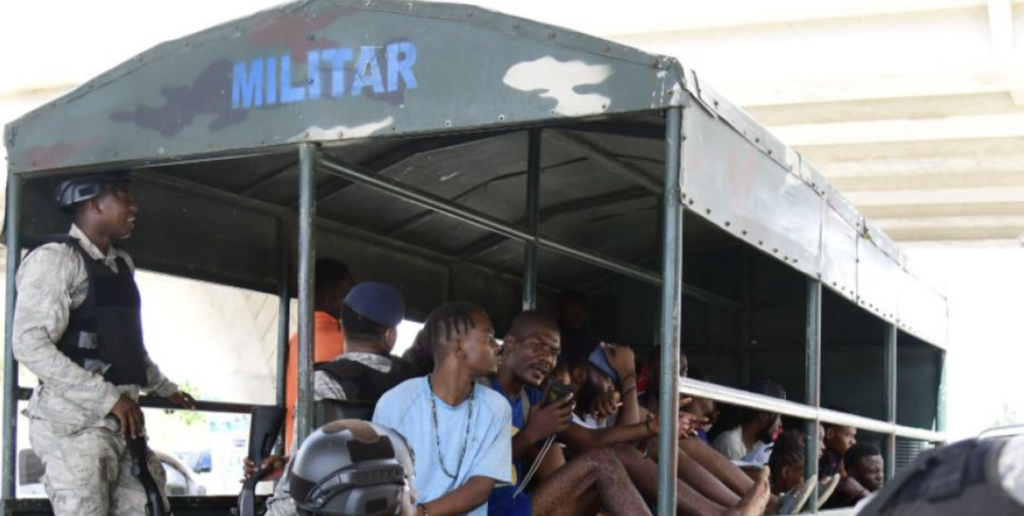
The Dominican Republic has significantly ramped up deportations of Haitian migrants, sending over 48,000 back to their homeland in less than two months. According to the Migration Agency statistics department, these figures include 40,223 deportations in October 2024 alone and an additional 8,338 in early November.
The Migration Agency does not account for the numbers of illegal crossings of the land border by undocumented. On binational market days, unchecked entries are allowed, with no statistics released on those who stay.
Meanwhile, the stepped-up pace of deportations aligns with a directive issued by President Luis Abinader on 3 October 2024, after acknowledging during the UN General Assembly in September 2024 that the multidimensional crisis in Haiti is worsening, not improving. Abinader authorized the Migration Agency and new authorities at the Ministry of Defense and Armed Forces to step of the deportation to a ceiling of 10,000 undocumented Haitians each week. The Dominican Republic for years has been Haiti’s escape valve to its situation of lack of jobs and social services. Abinader said the action was necessary to protect the country’s sovereignty and security.
While official figures indicate a total of 230,765 Haitian repatriations in 2024, the accelerated pace of deportations has sparked international condemnation. Haitian Foreign Minister Dominique Dupuy has denounced the actions as “racist and discriminatory,” alleging that the deportations are solely based on the migrants’ skin color.
Reports are that Haiti has retained international legal counsel to challenge the Dominican Republic’s deportation practices, claiming that migrants’ rights have been violated during the repatriation process.
Despite the mounting criticism, President Abinader has remained steadfast in his commitment to the deportation policy. “We are going to continue deporting those who are on the streets, those who do not have documents or any responsibility, because the security of the Dominican Republic comes first,” he asserted.
The ongoing crisis has ignited a heated debate within Dominican society over the issue of Haitian migration. While some argue for stricter enforcement of immigration laws, others advocate for more humane policies, such as granting work permits to undocumented Haitians, despite the violation of multiple Dominican laws.
Former President Hipólito Mejía is among those who favor Haitian labor migration, suggesting that the government should carefully consider the need for Haitian workers in specific sectors of the Dominican economy. Most of these workers are undocumented, primarily because of the lack of responsibility of governments in Haiti in issuing documentation to people in Haiti.
The major problem that has not received international attention is the lack of documentation of Haitians in Haiti. This creates a major problem when these cross over to the Dominican Republic seeking work and social services. The impact on the Dominican Republic grows as thousands of Haitians cross the border fleeing the situation in Haiti.
Eduardo García Michel writes in Diario Libre on the impact of continuing to allow unchecked and undocumented Haitian labor.
Read more in Spanish:
Listin Diario
13 November 2024

